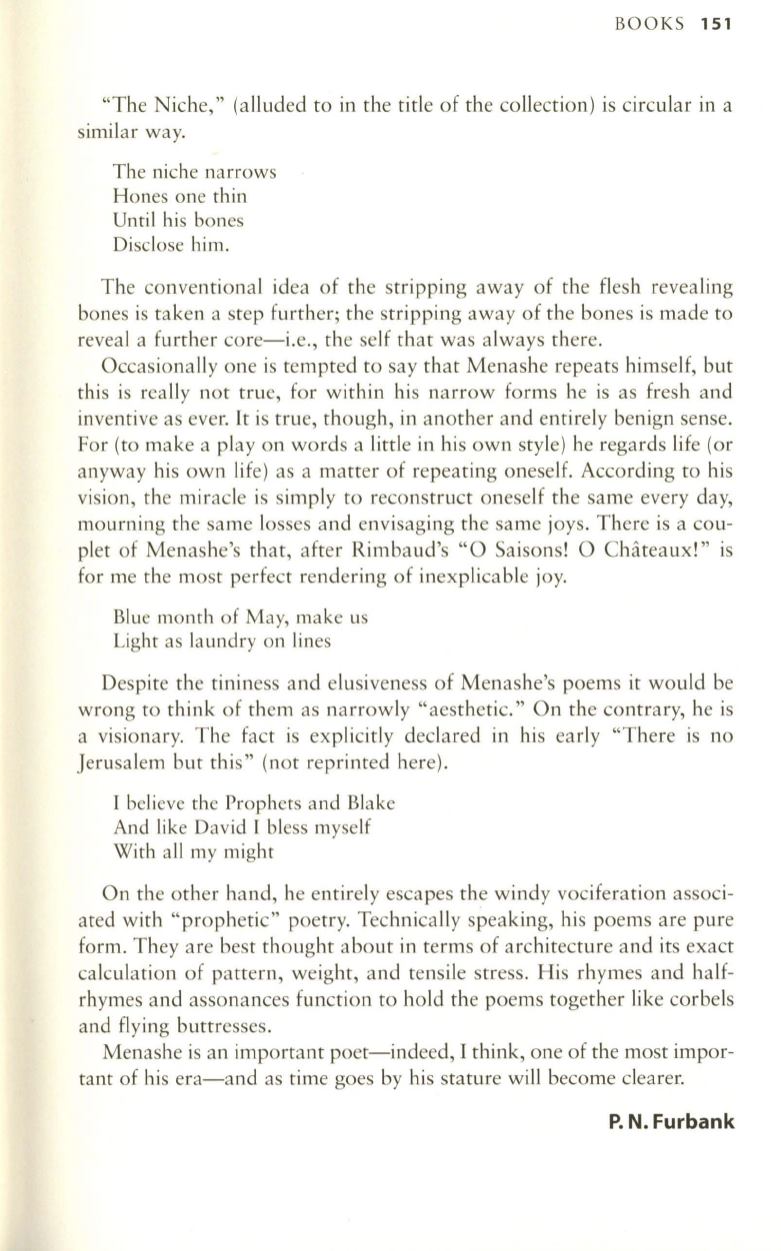
BOOKS
1 Sl
"The Niche," (alluded to in the title of the collection) is circular in a
similar way.
The niche narrows
Hones one thin
Until his bones
Disclose him.
The conventional idea of the stripping away of the flesh revealing
bones is taken a step further; the stripping away of the bones is made to
reveal a further core-i.e., the self that was always there.
Occasionally one is tempted to say that Menashe repeats himself, but
this is really not true, for within his narrow forms he is as fresh and
inventive as ever.
It
is true, though, in another and entirely benign sense.
For (to make a play on words a little in his own style) he regards life (or
anyway his own life) as a matter of repeating oneself. According to his
vision, the miracle is simply to reconstruct oneself the same every day,
mourning the same losses and envisaging the same joys. There is a cou–
plet of Menashe's that, after Rimbaud's "0 Saisons! 0 Chateaux!" is
for me the most perfect rendering of inexplicable joy.
Blue month of May, make us
Light as laundry on lines
Despite the tininess and elusiveness of Menashe's poems it would be
wrong to think of them as narrowly "aesthetic." On the contrary, he is
a visionary. The fact is explicitly declared in his early "There is no
Jerusalem but this" (not reprinted here).
I believe the Prophets and Blake
And like David I bless myself
With all my might
On the other hand, he entirely escapes the windy vociferation associ–
ated with "prophetic" poetry. Technically speaking, his poems are pure
form. They are best thought about in terms of architecture and its exact
calculation of pattern, weight, and tensile stress. His rhymes and half–
rhymes and assonances function to hold the poems together like corbels
and flying buttresses.
Menashe is an important poet-indeed, I think, one of the most impor–
tant of his era-and as time goes by his stature will become clearer.
P. N. Furbank


